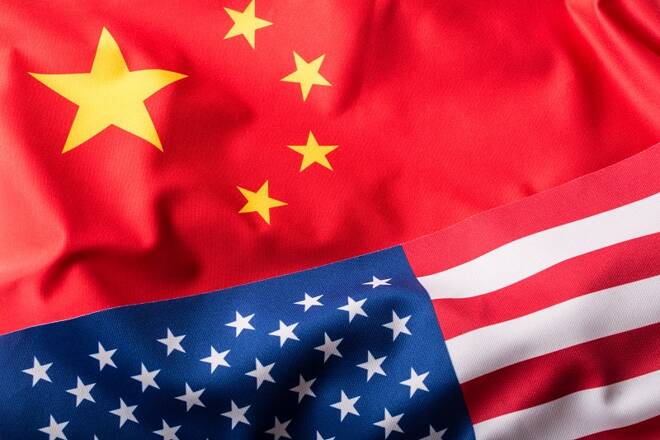Advertisement
Advertisement
U.S. Treasury Removes China as Currency Manipulator
By:
The U.S. has formally removed China as a currency manipulator, just ahead of the signing of the 'Phase 1' deal. Given its past record, will China really change its ways?
There was another positive development in the U.S-China trade relationship, as the U.S announced that China was no longer considered a currency manipulator.
On Monday, the U.S. Treasury reversed the decision made by the Trump administration in August, which designated China as a currency manipulator. The report noted that China “took concrete steps” last summer to devalue the Chinese yuan. In August, the yuan fell by 3.9% and dropped to 7.18 yuan/dollar in early September. The move was widely seen as a tool to combat U.S. tariffs and make Chinese goods more competitive.
Treasury found that the yuan had since strengthened and was currently trading at 6.93 yuan/dollar. The removal of China as a currency manipulator has boosted the yuan this week, which improved to 6.86 yuan/dollar on Tuesday, its lowest level since July 2019.
Although China has now been removed from the ‘currency manipulator’ list, the Treasury report kept China on a ‘Monitoring List’ for forex manipulation. Other countries on the list include Germany, Italy, Japan, Ireland, Switzerland, South Korea, Malaysia, Vietnam, Ireland and Singapore.
The release of the Treasury report was highly significant, coming just days before the U.S. and China are scheduled to sign the ‘Phase 1’ trade accord in Washington. This limited trade agreement is the first breakthrough in the bitter trade war between the two sides, which has raged for 2½ years. On Monday, Treasury Secretary said that in the Phase 1 deal, “China has made enforceable commitments to refrain from competitive devaluation and not target its exchange rate for competitive purposes”.
Still, with China having manipulated the exchange rate in the past to gain a trade advantage, it remains to be seen if Beijing will be willing to forego this tool, notwithstanding its written commitments in the Phase 1 agreement.
About the Author
Kenny Fisherauthor
Kenny is an experienced market analyst, with a focus on fundamental analysis. Kenny has over 15 years of experience across a broad range of markets and assets –forex, indices and commodities.
Advertisement
